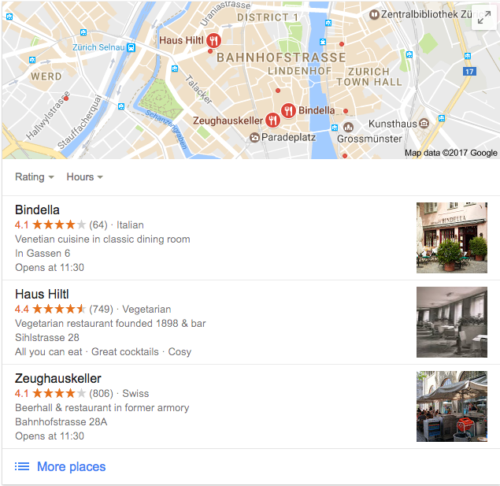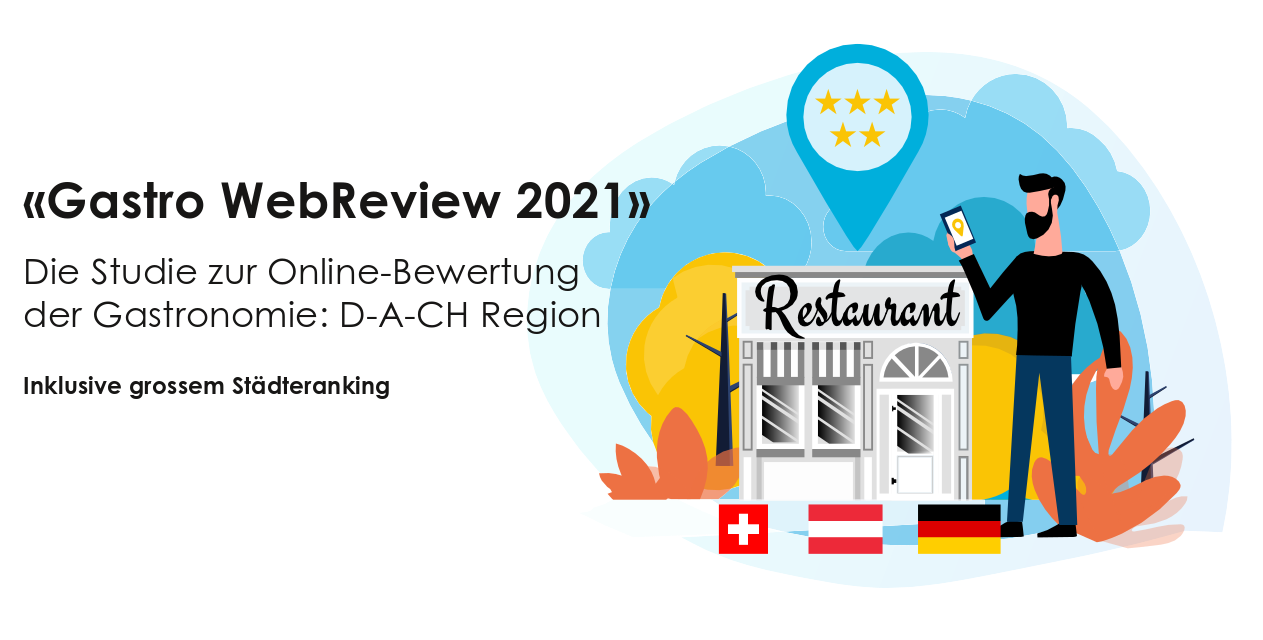Improve your search engine ranking with online reviews and responses

In the latter post, we touched on the topic of improving your search engine ranking with customer reviews and their responses. As we’ve received a lot of feedback and questions about this point, we are going to give you some more information about it; hence in this post, you are going to learn about the relevance of search engines, SEO for local businesses and how you can optimize your search engine ranking using some easy-to-use tricks.
1. Search Engine Ranking – Why is it important for a local business?
There are so many aspects which influence your online reputation. Clearly online reviews including responses are a part of it – but have you been aware, that your search engine ranking is too? Not convinced?
Well, let me explain: having a good online reputation is nothing more than building trust with your (potential) shoppers. When people research online (and they do constantly), they first want to find a fitting provider, who offers what they are looking for. This is usually achieved by using a search engine – hence you already need to be there to be a consideration.
Now, being in the shopper’s set of considerations, you are most likely not alone. They keep researching (e.g. checking your homepage and online reviews) and create a picture about you, which is your online reputation – everything what people see and find about you online.
But where does the trust fit in? For instance, Google is one of the most trusted companies, globally. Hence people trust Google, so if Google sees your business as “relevant” and ranks it top of the list, it’s a clear indication that qualifies you as trustworthy. Obviously, many other factors play a role in generating leads, but you can already feel the importance of being highly ranked on Google (or competitors like Yahoo! and bing) to end up in the set of considerations and ultimately be chosen by a potential shopper.
“Literally every business wants to be ranked top of the list on Google!”
2. SEO – What is it about?
Search Engine Optimization is in today’s digital world an undisputed need for all businesses – whether small or big. Literally every business wants to be ranked top of the list on all relevant search engines without paying for ads – that’s what SEO is about.
So, the “war” to be top-ranked is on, and many dedicated agencies are on the market, who can consult with you on how to improve your results. However, we say with a bit of effort and some handy online tools (like moz.com), you can learn a lot about SEO and make some first improvements yourself.
Everything you – or somebody else – write about your business is seen by potential shoppers, as well by search engines, which influences your ranking. As algorithms of search engines are not really tangible and fully understandable, the concrete outcome is not certain, but fact is, all keywords linked to your business have got an influence. And this particular part of SEO is what we are going to focus on in our next points, let’s get started with online reviews.

3. Reviews
Online reviews are nothing else than feedback written about your business by somebody else. The important words here are, “about your business” and “written by somebody else”. Meaning, content is generated by somebody else, linked to your business. Hence you already need to make sure of the following points:
- You’ve got a lot of reviews, ideally containing your relevant keywords
- The reviews are as positive as possible (don’t worry about one or another negative online review, this only makes you more authentic and you have an insight to improve for the future)
- The reviews are written on a relevant platform (we suggest being active at least on big players like Google, TripAdvisor, Facebook and Yelp)
With these points you make sure, your business is seen as more “relevant” by a search engine, because you are obviously a popular and well run place in the neighborhood and shouldn’t be ignored.
4. Responses
Compared to reviews, you create the content linked to your business yourself. This major advantage enables you to use certain tricks to influence the search result in your favor and the best thing is, it’s completely free.
- Answer all reviews diligently and make sure you use keywords, which are important for your business (e.g. for a restaurant you talk about your famous dish whenever possible)
- If the review is negative, don’t write your business name again in your response (e.g. in the signature). You don’t want the negative reviews to pop-up too prominently next to your business name.
On the other hand, make sure you always repeat your business name in responses to positive reviews.
Throw in a little marketing: if you already have the chance to communicate not only with the author of the review, but with all future readers, make sure to promote yourself a little bit. Don’t overdo it, as it can be misunderstood and lead to the opposite effect.
But for instance, if you answer a positive review about a nice dinner at your place, why not mention your famous lunch-offer, which they should try when they next come. Of course, the chance is high, that this particular reviewer won’t come for lunch, but your offer is seen by thousands reading the review.
5. Make it to the Google’s Snack Pack and get your data right
The holy-grail of being found as a local business is to be listed in Google’s Snack Pack. The Snack Pack is nothing more than the top search results displayed on the first page of Google that are then and linked to their Maps application.

How do you get there? Well, this depends foremost on Google, but you can influence this with a top-notch SEO (s. point 1). However, besides optimizing your own homepage you need to be “relevant” and this can be improved with the following steps:
- Get your data on Google Business Profile right:
- Claim your business on Google
- Update your address, phone, email, opening hours etc. (all these data have to be the same everywhere like your homepage, social media, other review pages)
- Upload nice and relevant pictures
- Make sure your customers know, they can rate you directly on Google
- Push the right keywords on your homepage (e.g. do you want to be found if people look for a pizza-place or generally a restaurant?). The more specific you can be, the smaller the competition is.
- Make sure your business (links to your homepage) is found on many other relevant pages (e.g. review sites, blogs, social media, industry news…)
- Be active on all your online channels: update your homepage and social media frequently (e.g. publish events) and try to create a dialogue whenever possible
Bottom line
Again, SEO is a very complex topic and a marketing discipline (some even say science!) on it’s own. We can’t capture all aspects of it here and as a business owner, engaging with this topic, it can become quickly overwhelming.
What is important is that you are aware of the opportunities of SEO and get a feeling of where you can start and what you can do. Whether you choose a DIY solution with some supporting web tools or you reach out to a dedicated agency isn’t important in the beginning, just start and make sure potential customers find you online.
Subscribe to our Awesome Newsletter.





